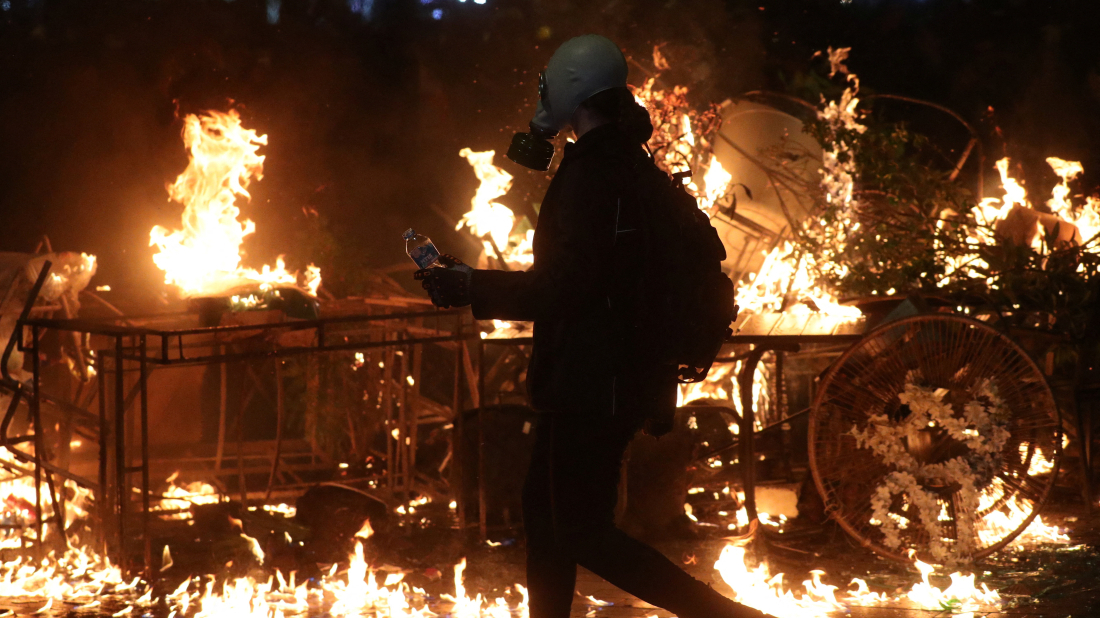Iran designates EU naval and air forces as ‘terrorist entities’ in reciprocal move
Iran announced on Saturday that it has designated the naval and air forces of European Union member states as “terrorist entities” in a reciprocal...

Georgia’s ruling Georgian Dream party has passed a sweeping legislative package that restricts political rights and sharply increases penalties for public protests, in a move drawing widespread concern from opposition parties, civil society, and international observers.
The amendments — adopted unanimously in a third reading with 81 votes — modify the country’s Organic Law on Political Unions, the Election Code, and parts of the Criminal Code. Supporters say the changes aim to safeguard national stability, but critics argue they mark a significant step away from democratic governance.
Under the new provisions, any political party dissolved by the Constitutional Court will face far-reaching consequences.
Members or affiliates of such banned groups will lose their right to run for office, hold leadership positions in public institutions, or join or fund other political parties.
Parties that admit those individuals into their ranks could face criminal fines.
The ruling party has already indicated plans to appeal to the Constitutional Court to ban up to ten political groups it deems unconstitutional.
Tougher rules on protests
The same legislative package also tightens control over assemblies and demonstrations.
Participants who cover their faces, block roads, or erect temporary structures could face up to 15 days of administrative detention — or 20 days if they are organizers.
Repeat offenses will now carry criminal penalties of up to two years in prison, while even minors could face fines, correctional labor, or jail time.
A new clause also introduces criminal responsibility for repeatedly insulting or disobeying police officers. Government’s position
Officials from Georgian Dream defended the measures, saying they are designed to prevent “foreign-funded destabilization” and protect the country’s constitutional order.
Party representatives insist the laws target only those seeking to undermine Georgia’s sovereignty and public safety.
Opposition and expert criticism
Opposition lawmakers and rights groups strongly disagree.Former Justice Minister Tina Khidasheli called the legislation “a clear attempt to build a one-party state under a legal façade.”
The Georgian Young Lawyers’ Association warned the new provisions would “criminalize dissent and give authorities unchecked power to suppress protest.”
Legal experts from the Democracy Research Institute noted that the changes enable “unprecedented political exclusion,” arguing that vague definitions could allow selective enforcement against government critics. International concern
The laws come amid growing scrutiny of Georgia’s democratic trajectory.
The Venice Commission and Human Rights Watch have both warned that similar legislative trends in Georgia undermine freedoms of expression and association — key conditions for the country’s European Union and NATO integration ambitions.
Western diplomats, including officials from the EU Delegation to Georgia, have urged the government to review the new measures and ensure they align with international human rights standards.
Quentin Griffiths, co-founder of online fashion retailer ASOS, has died in Pattaya, Thailand, after falling from the 17th floor of a condominium on 9 February, Thai police confirmed.
At least four people have died and 17 others were injured after a liquid gas truck overturned and exploded in Santiago, Chile’s capital, authorities confirmed on Thursday. Police said the driver was among those killed.
Cubans are increasingly turning to solar power to keep businesses operating and basic household appliances running during prolonged electricity cuts, as fuel shortages make diesel generators and other temporary solutions more difficult and costly to maintain.
Ukraine’s National Paralympic Committee has announced it will boycott the opening ceremony of the Milano Cortina 2026 Paralympics in Verona on 6 March, citing the International Paralympic Committee’s decision to allow some Russian and Belarusian athletes to compete under their national flags.
Eric Dane, the actor best known for his roles in 'Grey’s Anatomy' and 'Euphoria', died on Thursday, at the age of 53 after a battle with amyotrophic lateral sclerosis (ALS). His family confirmed his death after what they described as a “courageous battle” with ALS.
Iran announced on Saturday that it has designated the naval and air forces of European Union member states as “terrorist entities” in a reciprocal move after the EU blacklisted the Islamic Revolutionary Guard Corps (IRGC).
At least 10 people were killed and 50 wounded in Israeli strikes in Lebanon's Bekaa Valley on Friday (20 February), two security sources told Reuters, after the Israeli military said it had targeted Hezbollah sites in the Baalbek area.
Iran’s Foreign Minister Abbas Araghchi on Saturday (21 February) dismissed U.S. claims that 32,000 civilians were killed during protests in Iran. He said Tehran has already released official figures and called for evidence to support any higher estimates.
Uzbekistan's president Shavkat Mirziyoyev has held a series of high-level meetings in the U.S. aimed at strengthening bilateral economic and strategic ties between the two countries.
Türkiye has signalled readiness to contribute to a proposed Gaza stabilisation force during the inaugural Board of Peace meeting on Thursday (19 February), but according to former Turkish diplomat Mehmet Öğütçü, the decisive factor will be whether Israel and the United States agree on Ankara’s role.
You can download the AnewZ application from Play Store and the App Store.

What is your opinion on this topic?
Leave the first comment